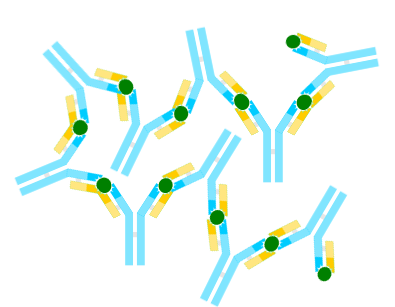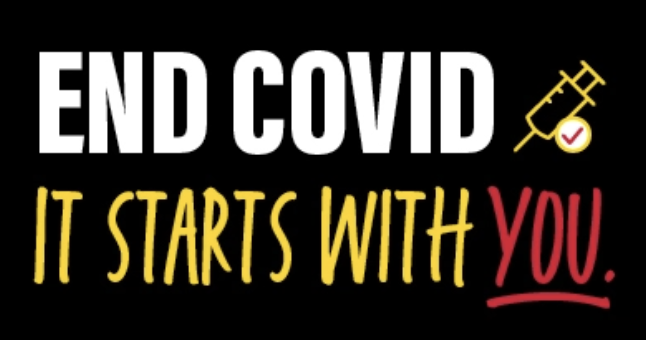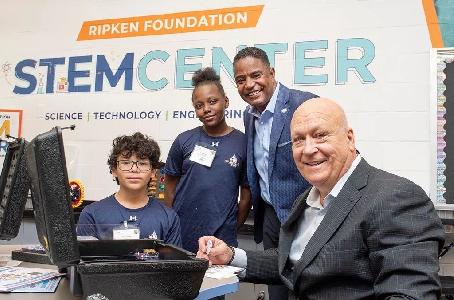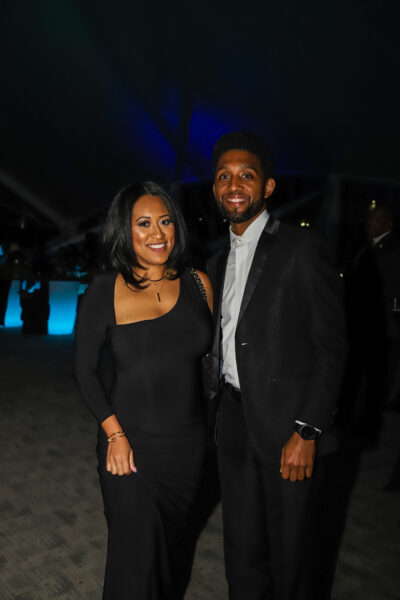Editor’s note: This post is by the editors of The CHARM Report, the youth-led journalism initiative of literary arts organization Charm: Voices of Baltimore Youth. It was reprinted from the CHARM site with permission.
Through service work as a Report for America corps member, Technical.ly Baltimore reporter Donte Kirby volunteers with the organization in an advisory role.
Earlier this month, teens who are 16 years of age or older became eligible to receive the COVID-19 vaccine in Maryland. It will allow youth to join a growing group: As of April 26, 1.9 million Marylanders have been fully vaccinated.
There are many teens who are relieved to have an opportunity to get the vaccine, however, there are some who still have reservations about the vaccine’s reliability. In this feature, we will be sharing a CHARM editor’s experience with the vaccine, insights on the stances of two Baltimore teens and important facts about the vaccines.
An editor’s experience, and views on the vaccine
One of our editors, Khira Moore, contracted the virus in March. Around this time, the vaccine rollout began and Moore, a 17-year-old, wasn’t eligible. Her symptoms started out with a fever on a Sunday afternoon, and she was told that she had COVID the following Monday.
That started two weeks of quarantine, where she remained holed up in her bedroom. Moore described her feeling about the virus as “a constant pit of isolation and loneliness.” Her family placed food and water outside of her door during these two weeks, and her friends expressed support as she dealt with her unfortunate situation.
It was revealed later that week that her father had contracted the virus, and he became quarantined alongside her. They spent the majority of their isolation cracking jokes and watching TV, as they watched from their windows as the world went on without them.
Prior to getting sick, Moore’s focus wasn’t on the vaccine. Before she spent her entire spring break in her bedroom, she largely didn’t think COVID affected the younger generation. By the end of those two weeks in quarantine, she had changed her tune.
“This virus is no joke,” Moore said. “We all need to be masked up and vaccinated. I would not wish what I had to experience on anybody.”
Moore got her first vaccine dose two weeks afterward. She is now enjoying the fresh air, and has high hopes for the future as vaccines are allowed for those 16 and over.
Interviews with Baltimore teens
The news that those under 18 were eligible for vaccines caused a lot of mixed feelings among teens. Some were eager, some were hesitant and others were just confused about whether or not they should get the vaccine.
For one teen, mixed messaging led to a dilemma.
“I actually had a roller coaster ride debating on whether or not I wanted to get the vaccine,” said Mei Ling Gao, a senior at Baltimore Polytechnic Institute. “At first, I was influenced by many people to not get the vaccine because they weren’t well educated enough, however, my boss and friend encouraged me to go get the vaccine because I was a food service worker.”
Gao started to educate herself by talking to her more educated peers and watching videos regarding the vaccines. Then, she became eager to get the vaccine.
For others, eligibility brought specific concerns. A Baltimore city teen, who chose to remain anonymous for privacy concerns, said that they were initially hesitant to get the vaccine despite being eligible because they doubted the legitimacy of the vaccine due to the speed at which it was produced. They felt that the limited amount of information of the possible effectiveness against the mutations and possible risks were scary. And because the virus is most harmful in older people, it made them question whether it’s worth getting the vaccine.
When she got the vaccine, Gao said the process was very smooth and easy, if you follow the steps.
I am excited to be a teen again and see my friends. I am excited to hug again. I really miss hugs.
“The vaccine itself didn’t hurt at all, which was really nice because usually I’m scared of needles and shots,” said Gao. “If you are scared of needles, there is nothing to worry about because it didn’t hurt at all. My advice is to just look away. After I got the shot, I felt happy because I felt that I would have protection and [that] gave me relief.”
Having moved past their initial doubts, both teens urged those hesitant about getting vaccinated to think about the benefits for the community.
“This will help not only yourself but keep others safe, contributing to herd immunity, which is so important,” said Gao.
Herd immunity is when enough people are vaccinated and/or immune to a disease that it can’t spread to people that are vulnerable to the disease.
“In order for the vaccine to work to its maximum effectiveness, we all have to put in an effort to at least give it a try. The faster everyone is vaccinated, the faster the masks can go,” said the other Baltimore teen.
Many people are scared to try new things, and that can be said about getting vaccinated. Gao’s biggest fear initially was related to side effects. But after doing her research, she realized the side effects are helpful in showing that your immune system is responding and getting ready to attack COVID.
“Everyone is scared about the side effects of this vaccine but, there are side effects for a lot of things,” said Gao. “Everything has its pros and cons.”
Looking ahead, both teens are hoping to return to normal in the future with no masks and no fears.

An antigen-antibody complex. (Photo by Alejandro Porto, via Wikimedia Commons)
Vaccine facts
In the United States, three vaccines have been approved to be distributed: vaccines from BioNTech Pfizer, Johnson & Johnson**, and Moderna.
The BioNTech Pfizer and Moderna vaccines require two shots for you to be fully protected. These vaccines are not interchangeable so whatever you got for your first shot, you must get for your second. If you receive BioNTech Pfizer you should get your shot 3 weeks after your first shot. If you get a Moderna Vaccine you should get your second shot 4 weeks after your first. However, the Johnson & Johnson vaccine requires only 1 shot. (For more detailed information on the timing on the vaccines please check out the CDC.)
BioNTech Pfizer can be given to people 16 years and older. Moderna and Johnson & Johnson can be given to people 18 years and older.
While there is a difference in the rate of effectiveness, that doesn’t mean one vaccine is better than the other. The CDC encourages people to get whatever is available to you because all COVID-19 vaccines are “safe, are effective, and reduce your risk of severe illness.”
“The CDC does not recommend one vaccine over another,” its website states.
** On April 13th, 2021, the CDC and FDA recommended a pause in the use of Johnson & Johnson vaccine. This pause was lifted on April 25. There were about 7 million doses of this vaccine injected into people so far, and a small number of reports have been made over blood clots. All of these reports happened in women from ages 18 to 48. However, this shouldn’t be a worry to everyone. This is a very small number of people and the pause was made out of precaution. Please don’t let this scare you and educate yourself more on this matter on the CDC website.
Breaking down the science behind the vaccine
When our bodies encounter a pathogen, our immune systems are exposed to that pathogen’s antigen. An antigen is essentially any foreign substance that provokes a response from the immune system. One way that our immune systems tackle the invasion of a pathogen is through the production of antibodies — unique, Y-shaped molecules that are able to neutralize infections.
Once our bodies produce antibodies specific to a pathogen’s antigen, the immune system’s B lymphocyte cells form memory cells that can produce the new antibodies if we are re-exposed to the pathogen in the future. The generation of these memory cells promotes a faster and more effective immune response upon exposure to a bacterium or virus.
Many modern vaccines contain biological instructions to produce the target antigen in our bodies. When the antigen is produced, the immune system is thrown into action, generating the necessary antibodies and memory cells. This ensures that our bodies are already prepared to produce antibodies if or when we come in contact with a certain pathogen.
As mentioned above, the best-known vaccines targeting SARS-CoV-2 come from pharmaceutical companies Pfizer, Moderna, and Johnson and Johnson. Both Pfizer and Moderna have developed mRNA vaccines that introduce the immune system to the genetic information that carries instructions to produce the virus’s antigen. Johnson and Johnson, however, has developed a viral vector vaccine that transports instructions for the antigen through an inactive form of the virus. To learn more about the available COVID-19 vaccines and how they work, please visit the CDC’s website.
Addressing misconceptions
There are many who have reservations about one or more vaccines, and are wondering which one is the most effective. However, this is not an easy conclusion to make. While it may seem easy to rely on the efficacy rate of each vaccine, it is important to recognize that a vaccine’s effectiveness depends on the individual. Pfizer’s efficacy rate of 95% does not mean that 95% of the people receiving this vaccine will not develop COVID-19, but instead that an individual who receives the vaccine has a 95% chance of not falling ill when coming in contact with the virus.
Many have also come to believe that they will not need the vaccine if they have already been infected with COVID-19. Even if you have previously had COVID-19, it is still advised that you get vaccinated; the vaccine will be a much more reliable source of immunity.
Currently, 84.3 million Americans are fully vaccinated. While this is a big step toward overcoming COVID-19, precautions should still be taken. Even if you are vaccinated, you can still spread the virus, so it is necessary to continue wearing masks in public and following social distancing guidelines.
For more information on the science behind vaccines and the vaccines being used to prevent COVID-19, please visit the World Health Organization and The Vaccine Alliance.

A COVID-19 PSA. (via University of Maryland Medical System)
Rollout plans for vaccination in Maryland and Baltimore
As of April 6, teens 16 and older are eligible to get the vaccine at any mass vaccination center in Maryland. On April 12, all Marylanders 16 and older became eligible for vaccination through all providers.B altimore City announced that, by April 27, all teens 16 and older can get the vaccines at its sites.
Steps for getting vaccinated include:
1. Determine your eligibility.
2. Pre-register for an appointment. Here are a few options:
- covax.baltimorecity.gov
- https://onestop.md.gov/preregistration
- https://www.vaccination-registration.com/umms/bccfh
3. Wait until you get connected and schedule an appointment.
4. Go to your appointment date. Once vaccinated, depending on which shot you received, you will have already scheduled another appointment for the second dose.
Visit Baltimore City Health Department and Maryland.gov for more information from the city and state.
“I am excited to be a teen again and see my friends. I am excited to hug again. I really miss hugs,” said Gao.
Join the conversation!
Find news, events, jobs and people who share your interests on Technical.ly's open community Slack

Baltimore daily roundup: The city's new esports lab; a conference in Wilmington; GBC reports $4B of economic activity

Baltimore daily roundup: Find your next coworking space; sea turtle legislation; Dali raided and sued

Baltimore daily roundup: Johns Hopkins dedicates The Pava Center; Q1's VC outlook; Cal Ripken inaugurates youth STEM center


